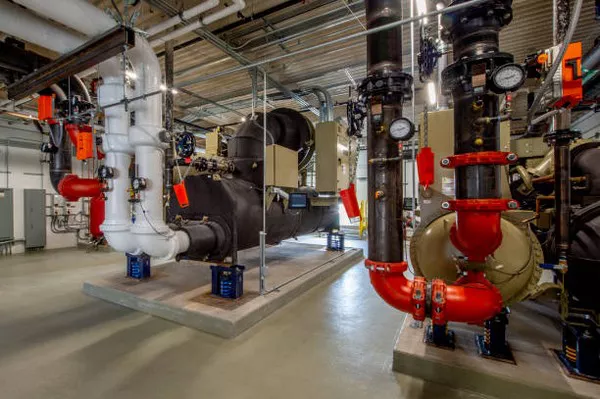Central air compressors are the workhorses of various industries, providing compressed air for a wide range of applications. Whether it’s manufacturing, construction, or automotive repair, a reliable central air compressor is essential for many businesses. However, determining the cost of central air compressors can be a complex task, as it depends on several factors. In this article, we will delve into the key elements that influence the price of central air compressors, helping you make informed decisions when purchasing one for your specific needs.
Types of Central Air Compressors
The first factor that affects the cost of central air compressors is the type of compressor you choose. There are several common types, each with its own set of advantages and price points:
a. Reciprocating Compressors: These compressors use a piston and cylinder arrangement to compress air. They are known for their durability and cost-effectiveness, making them a popular choice for smaller applications. The price of a reciprocating compressor can vary widely based on its size and capacity, but they are generally more affordable than other types.
b. Rotary Screw Compressors: These compressors use two rotating screws to compress air. They are highly efficient and are often used in larger industrial applications. Due to their advanced technology and capacity, rotary screw compressors tend to be more expensive than reciprocating compressors.
c. Centrifugal Compressors: Centrifugal compressors are used in high-capacity, continuous-duty applications. They are known for their energy efficiency and reliability. However, they are typically the most expensive type of central air compressor due to their complex design and advanced features.
d. Scroll Compressors: Scroll compressors are commonly used in residential and smaller commercial applications. They are compact and efficient but may not be suitable for heavy-duty industrial use. Their cost is generally moderate, making them an attractive choice for smaller businesses and residential purposes.
Capacity and Size
The capacity and size of the central air compressor play a significant role in determining its cost. The greater the capacity or output of the compressor, the higher its price is likely to be. Compressors are rated in terms of cubic feet per minute (CFM) or liters per second (L/s) of compressed air output. To determine the right capacity for your needs, it’s crucial to evaluate your specific application’s air demand.
A larger compressor is often required for industrial applications with high air demand, such as large manufacturing plants, while smaller compressors may suffice for residential or light commercial use. Keep in mind that oversized compressors can lead to inefficiencies and increased operating costs, so it’s essential to select the right size for your requirements.
Brand and Manufacturer
The brand and manufacturer of the central air compressor can also significantly impact its cost. Well-established and reputable brands often charge a premium for their products due to their track record of reliability and performance. While it may be tempting to opt for a lesser-known or cheaper brand, it’s essential to consider the long-term cost implications, including maintenance and repair expenses.
High-quality compressors from trusted manufacturers are more likely to provide consistent performance and durability, reducing downtime and overall operating costs in the long run. Researching and comparing different brands and models is a crucial step in making an informed purchasing decision.
Features and Technology
Central air compressors come with various features and technological advancements that can affect their price. Some common features and technologies include:
a. Variable Frequency Drives (VFDs): Compressors equipped with VFDs can adjust their motor speed to match the required air demand, resulting in energy savings and reduced operating costs. While VFD-equipped compressors may have a higher initial cost, they often provide a quick return on investment through energy savings.
b. Integrated Dryers and Filters: Some compressors come with integrated air dryers and filters, eliminating the need for separate equipment. While these features can increase the upfront cost, they contribute to improved air quality and reduced maintenance requirements.
c. Noise Reduction Technology: Compressors equipped with noise-reduction technology, such as sound enclosures and vibration dampening, are more expensive but are essential for applications where noise levels must be kept to a minimum.
d. Smart Controls: Compressors with advanced control systems and remote monitoring capabilities may have a higher initial cost but can provide enhanced efficiency and easier maintenance.
Installation and Maintenance Costs
The cost of purchasing a central air compressor is just one part of the equation. Installation and ongoing maintenance expenses must also be considered. Proper installation by trained professionals is crucial to ensure the compressor operates efficiently and safely. Installation costs can vary depending on the complexity of the setup, location, and any necessary modifications to the existing infrastructure.
Moreover, ongoing maintenance and service requirements can add to the overall cost of ownership. Regular maintenance is essential to keep the compressor running smoothly and extend its lifespan. Neglecting maintenance can lead to costly repairs and reduced efficiency.
Conclusion
Central air compressors are integral to various industries and applications, and their cost can vary significantly based on several factors, including the type, capacity, brand, features, and installation requirements. To make an informed decision, it’s essential to assess your specific needs, budget constraints, and long-term cost considerations.
While it may be tempting to cut costs by opting for a cheaper compressor, investing in a high-quality, well-maintained unit from a reputable manufacturer can ultimately save you money in the long run through improved efficiency, reduced downtime, and lower operating expenses. Always consult with experts or professionals in the field to ensure you select the right central air compressor for your specific application.

